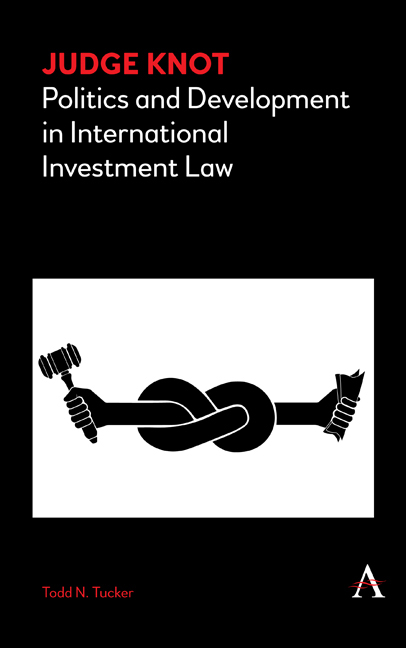Book contents
- Frontmatter
- Dedication
- Contents
- List of Illustrations
- Acknowledgments
- Introduction
- Chapter One Entering the Judge Knot
- Chapter Two Historicizing Investment Law
- Chapter Three Why Investors Demand Investment Law
- Chapter Four Why Arbitrators Supply Investment Law
- Chapter Five Why Investment Law Lasts
- Chapter Six Toward Global Popular Constitutionalism
- Appendix Methodology
- Index
Chapter Two - Historicizing Investment Law
Published online by Cambridge University Press: 21 June 2018
- Frontmatter
- Dedication
- Contents
- List of Illustrations
- Acknowledgments
- Introduction
- Chapter One Entering the Judge Knot
- Chapter Two Historicizing Investment Law
- Chapter Three Why Investors Demand Investment Law
- Chapter Four Why Arbitrators Supply Investment Law
- Chapter Five Why Investment Law Lasts
- Chapter Six Toward Global Popular Constitutionalism
- Appendix Methodology
- Index
Summary
The discovery of America […] naturally gave rise to a vast number of disputes which the scanty International Code of the Middle Ages was quite unable to settle. That code […] possessed no means of unraveling complications with regard to the character of the acts necessary in order to obtain dominion over newly discovered territory.
—British Foreign Secretary Charles Carmichael (1884) (quoted in China Mieville 2006)Any scholarly consideration of international investment law faces an immediate hurdle: What theory or even what academic discipline is best suited to the task?
There are a few disciplines we can exclude from the outset, for instance economic development studies. From a pro- state dirigiste thinking of the postwar period to a market fundamentalist neoliberalism in more recent years, development scholars have thoroughly trod the terrain of the optimal balance between the state and the market in emerging economies. This happens to be much of the same subject matter that now consumes investor– state dispute settlement (ISDS) arbitrations, which are overwhelmingly brought against developing nations but increasingly against developed nations as well. The implications of this overlap are dealt with extensively in chapter 3. In this chapter, suffice it to say that economic development studies tell scholars and students a great deal about change within countries, but they say little about shifts in the international system such as investor arbitration.
Legal scholarship offers scarcely more help. The seeming legalese of investment arbitration awards—long and dense with Latin phraseology—suggests a tentative fit. Yet, as one prominent international law scholar told me, “The only trouble with teaching investment law is there is so little law in it.” She did not mean lawyers were not involved. Indeed, lawyers run the law firms, arbitration centers and tribunals that make the system possible. Rather, she was making an observation well- known to practitioners—the decisions that the lawyers make are not particularly law- like. Take the 2014 award stemming from Russia's expropriation of fallen oligarch Mikhail Khodorkovsky's assets, collectively referred to as the Yukos cases. While taking up thousands of pages of text, these documents focused mostly on the recitation of a factual chronology of increasing state harassment of the once- favored billionaire, with legal interpretation taking up only a few pages (Fortier et al. 2014).
- Type
- Chapter
- Information
- Judge KnotPolitics and Development in International Investment Law, pp. 23 - 56Publisher: Anthem PressPrint publication year: 2018



